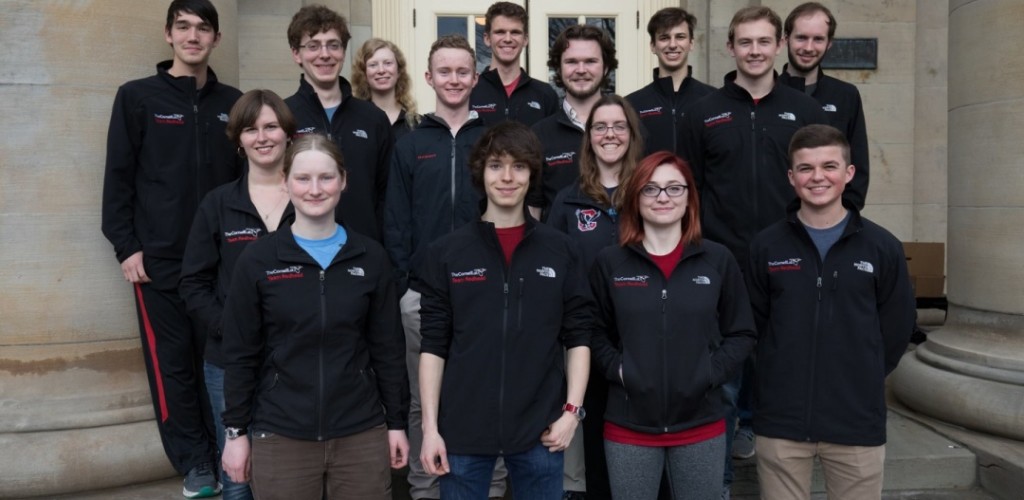Cornell fielded four teams of undergrads in the annual World Series of Birding in New Jersey May 6. (They are collectively called “The Redheads” because of the Cornell Big Red association; a redhead is also a type of duck.)
The World Series of Birding first began over three decades ago as a means to help fundraise for bird conservation, having participants solicit pledges for every species of bird they identify. The Redheads were honored to take part in such a historic event dedicated to bird culture, said Andrew Dreelin ‘17.
“Not only do we get a chance to celebrate that wonderful reality at the World Series, but we also get to represent the Cornell Lab of Ornithology and raise funds for our fellow undergraduates to pursue research in ornithology, something we desperately need to prepare this generation's cadre of ornithologists and conservation biologists,” said Dreelin.
The Redheads State team, led by Dreelin and co-captain Alex Wiebe '19, won their division, taking home the Urner Stone Cup with a total of 212 species tallied. Rare sightings of little gull, red-necked phalarope and little egret were among the highlights.
“Birds are just such an active and flashy group of organisms that it seems natural to push yourself to see as many species as possible in one day," said Dreelin. “I love birding because I can experience an amazing diversity of life that practically begs to be appreciated."
The Cape May County team came in second in that division with 160 species. Their best birds were common nighthawk, red-necked phalarope, yellow-throated vireo and barn owl.
The Carbon Free team (no motorized vehicles used) earned second place in their division with 130 species. Their highlights were black skimmer and brown pelican.
The Redheads Big Stay team (teams remain in one location at Cape May Point State Park and tally only birds they can see or hear from that spot) finished second in their division with 81 species. Their best birds were brown pelican and royal tern.
“Birds and ornithology are the specific reason I (and numerous other birders) came to Cornell, and the Lab of O has done an unbelievable job in providing opportunities for us to pursue careers in ornithology at the undergraduate level,” said Dreelin.
Supporters pledge an amount for each species the teams found, and you can still donate at Birds.cornell.edu/Redheads. All funds raised go to student research.
Team members were:
State:
- Andrew Dreelin '17 (Co-captain)
- Alex Wiebe '19 (Co-captain)
- Luke Seitz '16
- Sarah Toner '19
- Alec Hopping '20
County:
- Sarah Dzielski '17 (Captain)
- Chris Sayers '21
- Liam Berigan '17
- Sam Heinrich '20
Carbon Free:
- Jeremy Collison '20 (Captain)
- Augie Kramer '19
- Read Barbee '20
Big Stay:
- Menachem Goldstein (Captain)
- Ava Jarvis '18
- Zoe McCormick '20
- Samantha Hagler '20
- Max Kirsch '19






